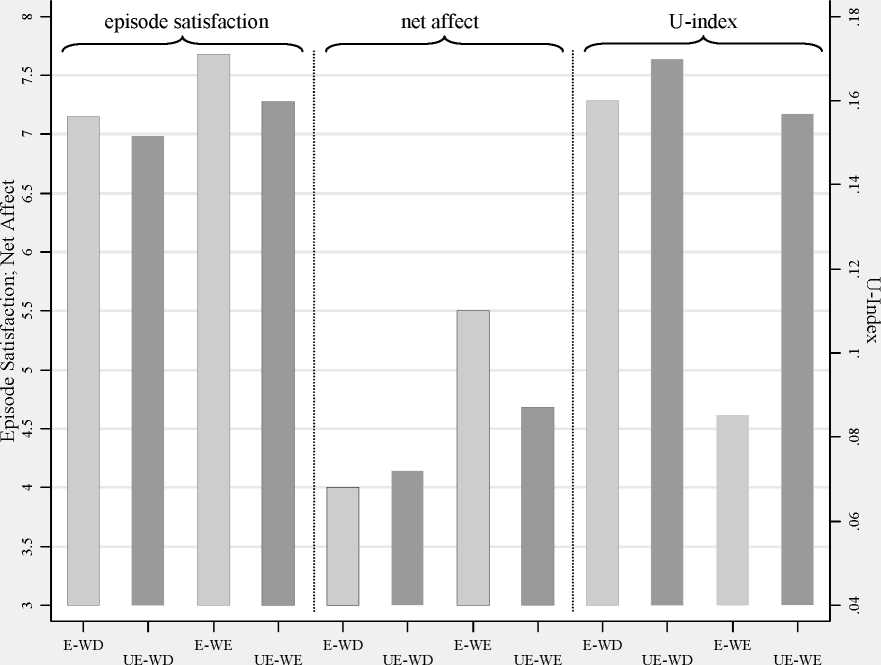18
persons shift their time to more favorable activities, and that this time-composition effect is
sufficiently large to offset the saddening effect completely. For the U-index, the saddening
effect is - relative to the initial value of the U-index - larger than for the net affect. Looking
at episode satisfaction, the saddening effect is the smallest relative to its initial value. For the
latter two measures, the time-composition effect is not sufficiently large to fully compensate
the saddening effect (although the differences are not statistically significant).
Figure 1: Experienced utility, separated by weekdays and weekends

Note: E - Employed, UE - Unemployed, WD - Weekday, WE - Weekend
The second possibility to illustrate the role of the time-composition effect is to compare the
net affects of the two groups on weekdays and weekends. On weekdays, employed typically
have to work and are not free to allocate their time any way they like. Instead, they spend a
large share of their time on tasks which yield relatively low experienced utility. The
unemployed, on the other hand, are less bound by external restrictions and can shift their time
to more favorable activities. On the weekend, however, the employed can freely decide how
More intriguing information
1. Developmental changes in the theta response system: a single sweep analysis2. Learning and Endogenous Business Cycles in a Standard Growth Model
3. Expectations, money, and the forecasting of inflation
4. Sectoral specialisation in the EU a macroeconomic perspective
5. Rent-Seeking in Noxious Weed Regulations: Evidence from US States
6. Language discrimination by human newborns and by cotton-top tamarin monkeys
7. Spatial patterns in intermunicipal Danish commuting
8. Economies of Size for Conventional Tillage and No-till Wheat Production
9. The Impact of Hosting a Major Sport Event on the South African Economy
10. The name is absent